While there are many ways to see the exact battery life left on your iPhone, you can take all the work out of it by making your iPhone verbally tell you the current percentage every time you start or stop charging it. Best of all, this trick works whether you use wired or wireless chargers.
In most cases, you can see your iPhone's battery level pop up on the screen whenever you begin or end charging, but it's there and gone before you even realize it. With a custom automation, you can get a spoken confirmation of your iPhone's current battery level, so you never have to worry about hunting for it manually.
Jump to the instructions below to get started. If you'd rather customize the automated actions for charging and not charging another way, here are a few other things you can make your iPhone do:
- Play a Sound or Song When Connected or Disconnected from Power
- Tell You Whenever It Has Reached 100% Full Battery
- Say Whatever You Want When You Connect a Charger
- Alert You Whenever There's Only 5% Battery Life Left
Building the Shortcuts Automation
To start, open up your Shortcuts app. You can reinstall it from the App Store if you've deleted it. I'm using iOS 16 for this guide, but it will also work on iOS 14 and 15. And in case you're wondering, it will also work on iPad models running iPadOS 14–16 — the process is the same.
Choose Your Triggers
In the "Automation" tab, tap the plus (+) sign, choose "Create Personal Automation," and select the "Charger" trigger. Then select "Is Connected" and "Is Disconnected" if you want Siri to tell you the battery level when you start charging your iPhone and when you stop. You could do one or the other if that suits you better.
Tap "Next" to start building the actual workflow for the automation.
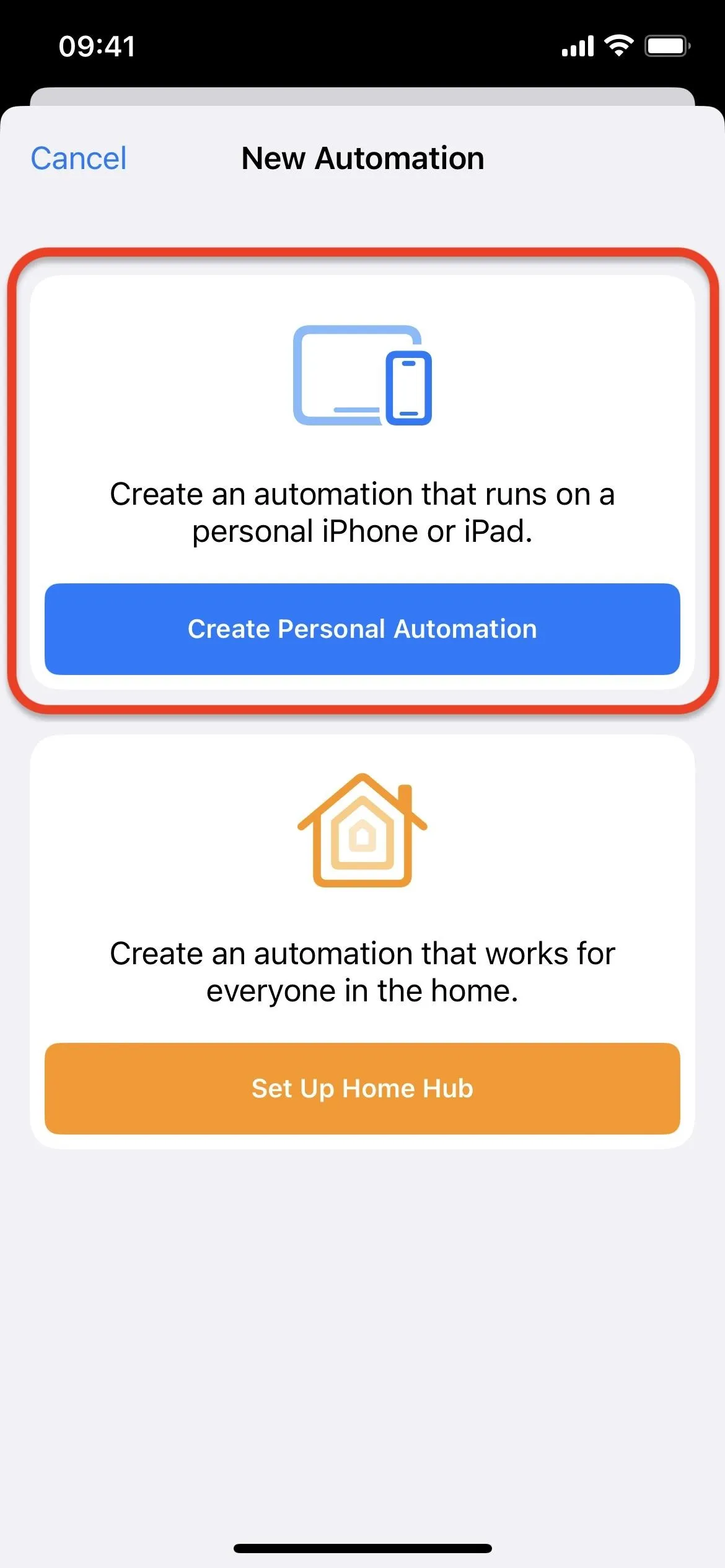
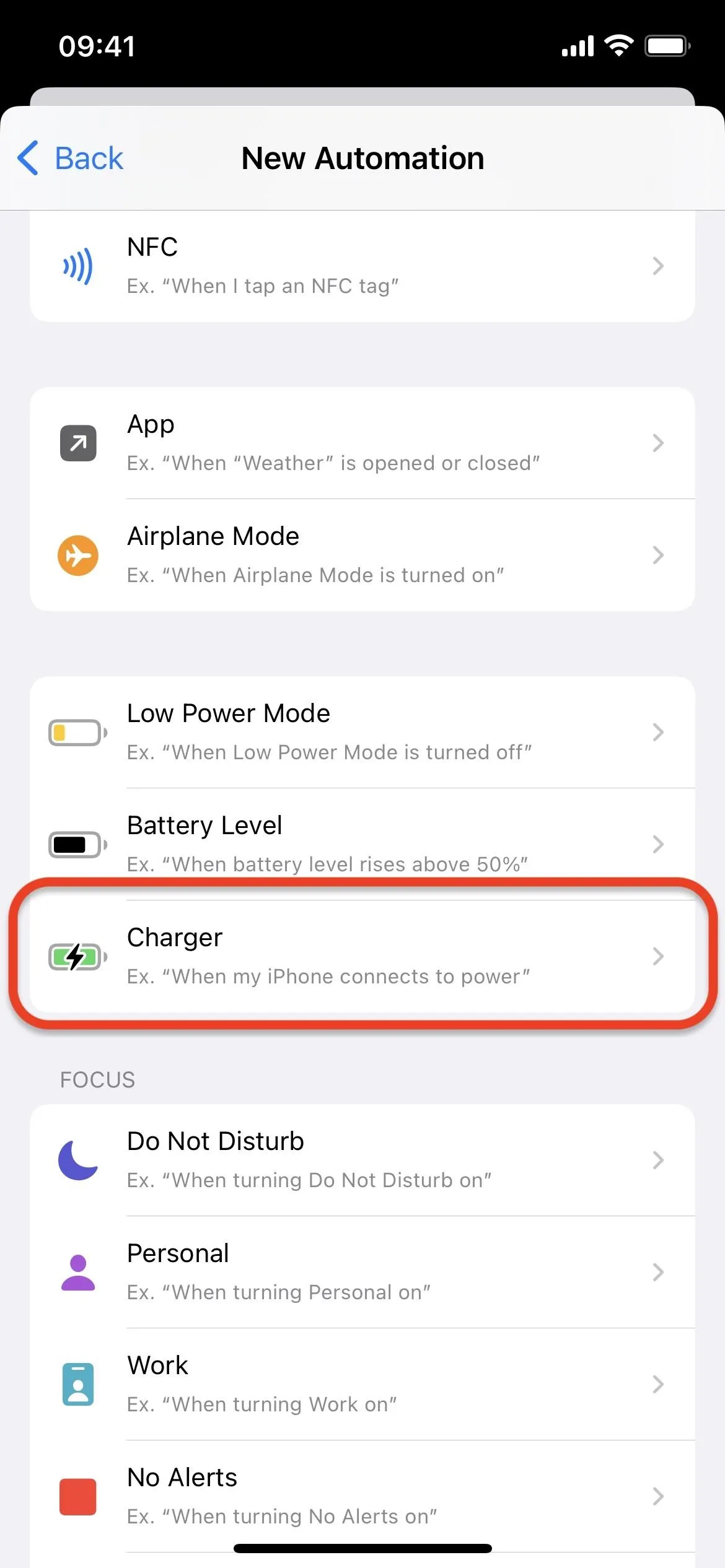
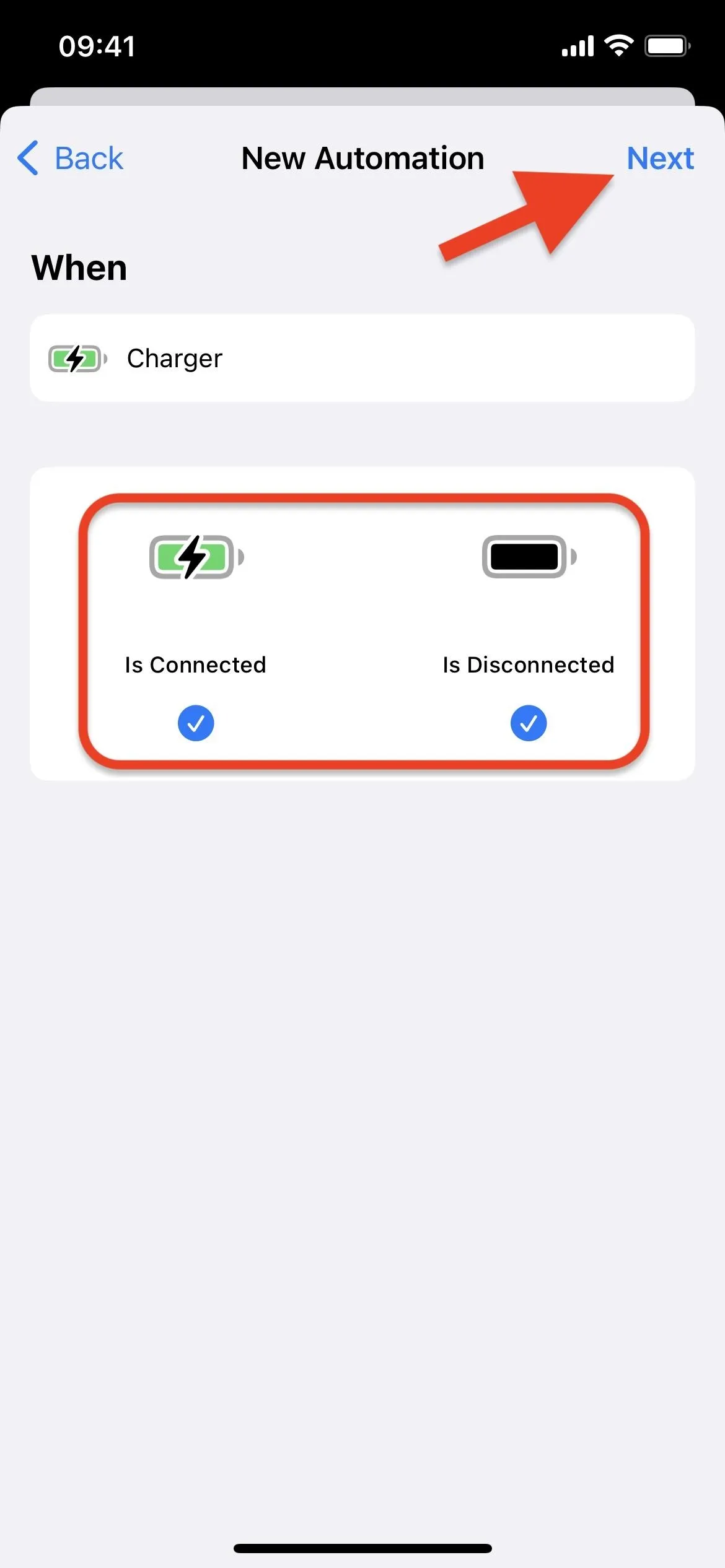



Add the 'Get Battery Level' Action
For the automation's workflow, tap "Add Action" or the search bar at the bottom, then find and select "Get Battery Status" or "Get Battery Level."
You'll see "Get Battery Status" on iOS 16.2 and later, while "Get Battery Level" on iOS 16.1.2 and earlier. They are the same actions, only the newer iOS 16.2 version lets you switch "Battery Level" to "Is Charging" or "Is Connected to Charger," which we don't need to do.
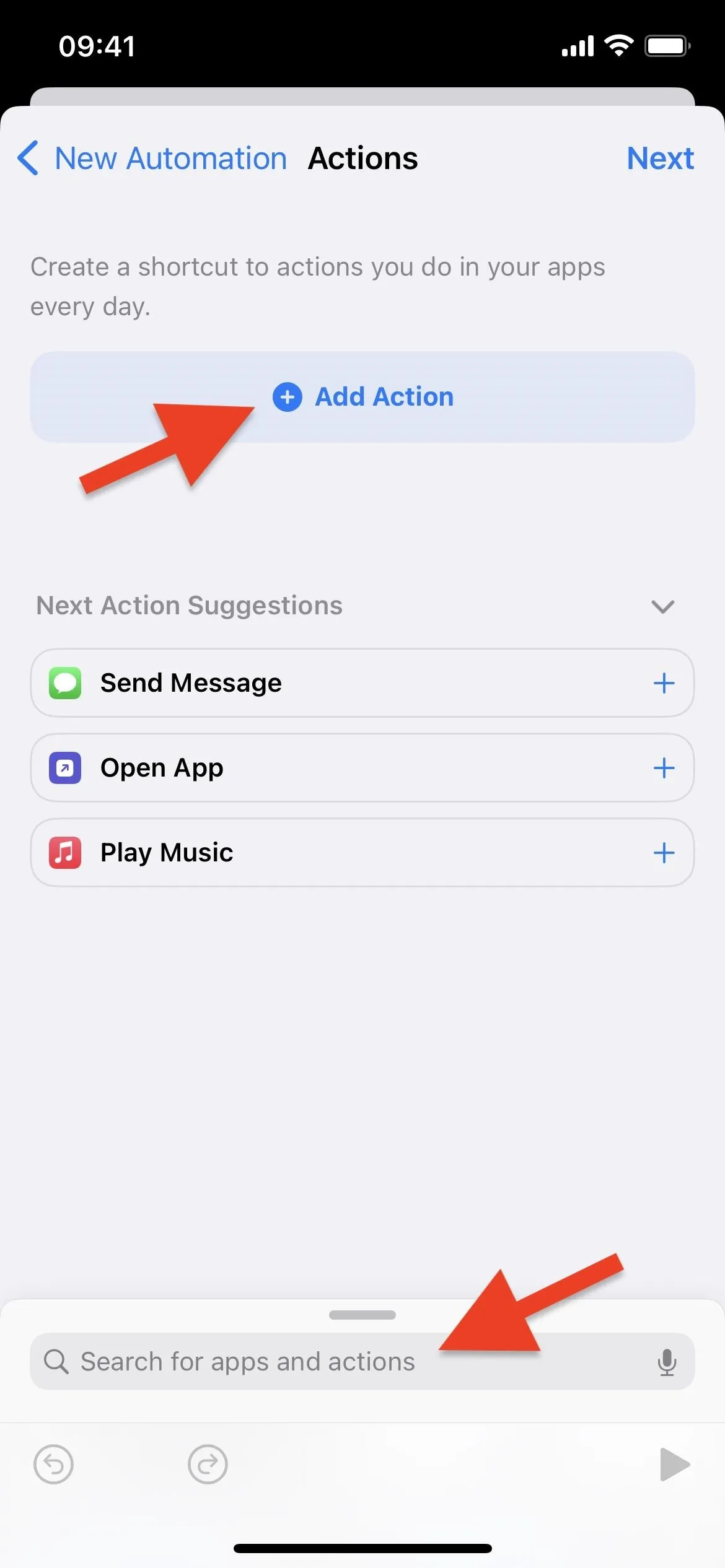
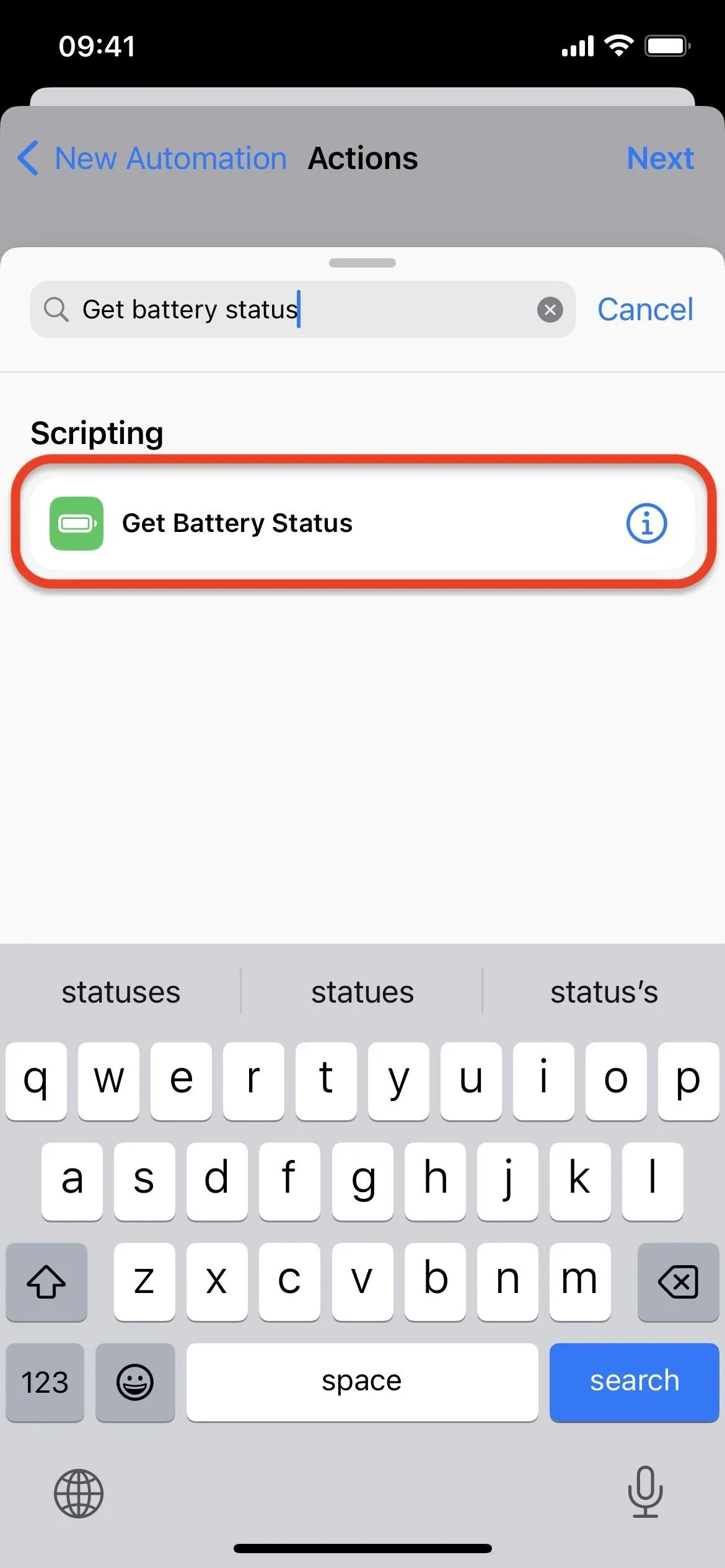
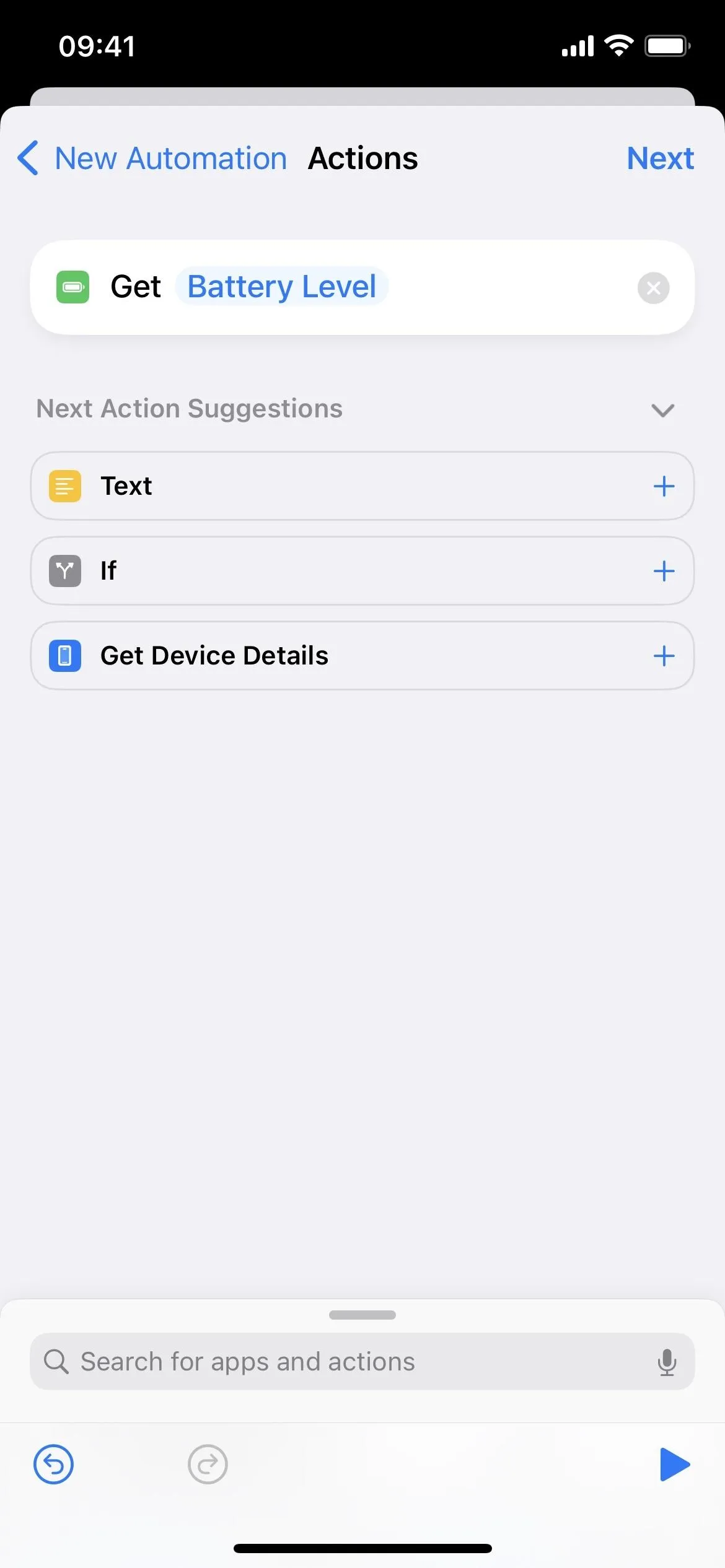



Add the 'Speak Text' Action
Hit the search bar and find and select the second action, "Speak Text." If you stop here, Siri will only say the battery level as a number. For example, if it's at 46%, Siri will speak "46" instead; To change this, see Step 4.
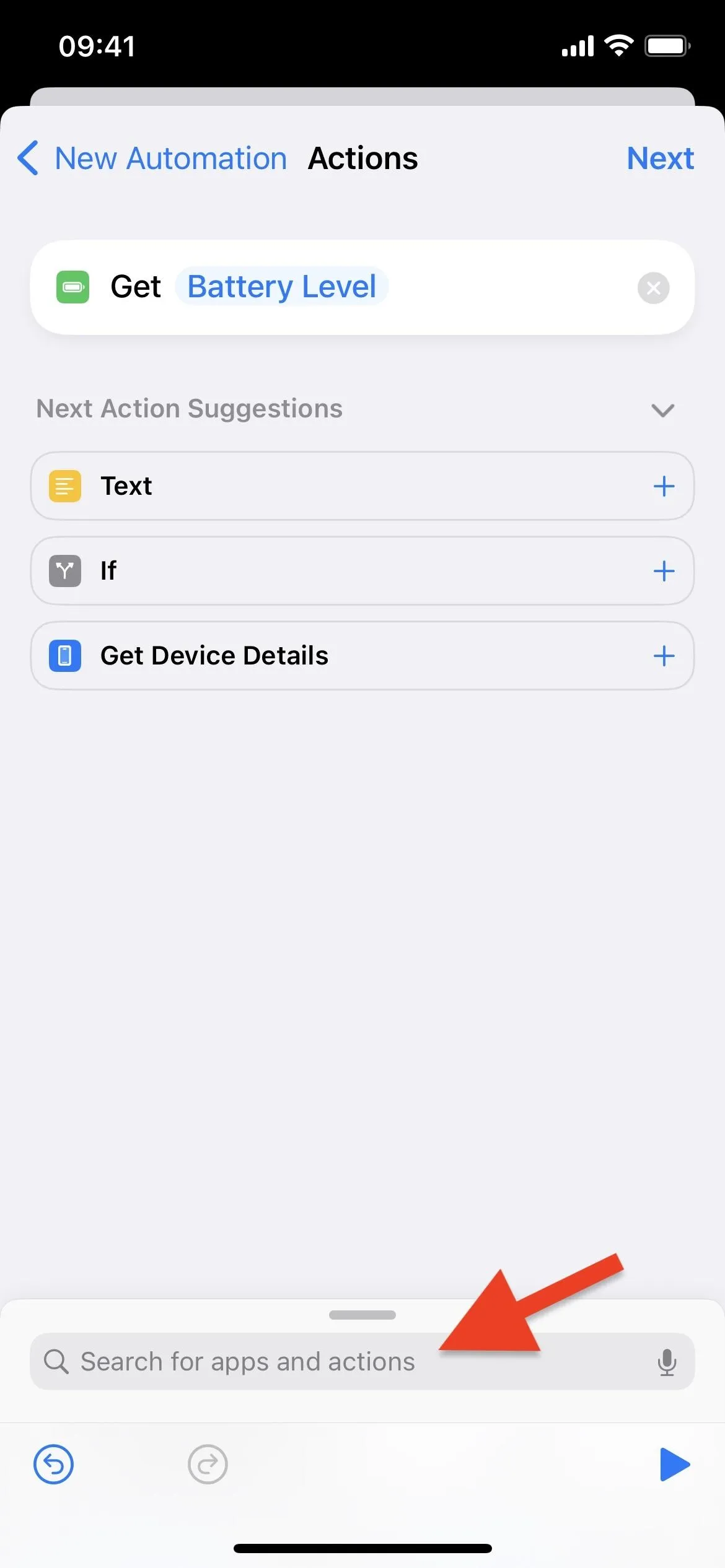
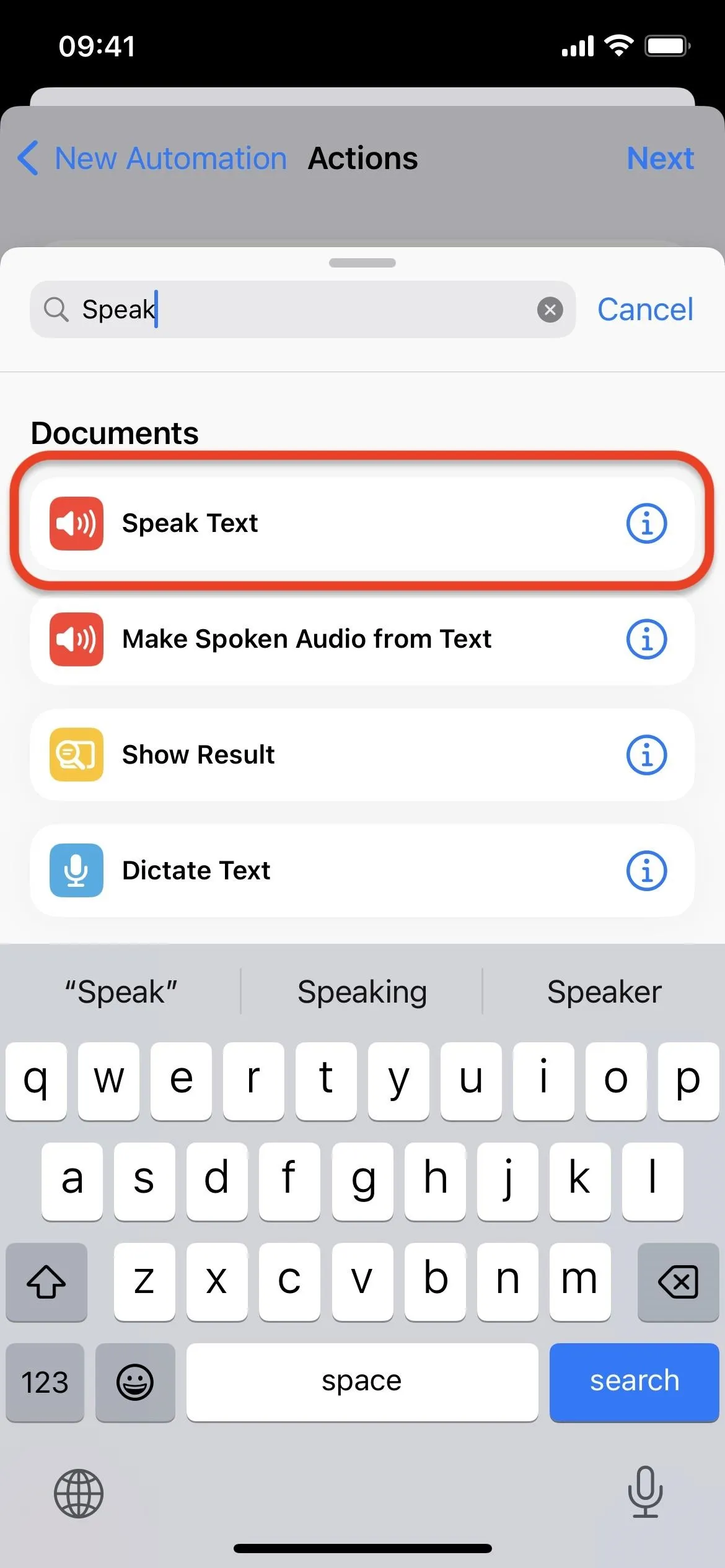
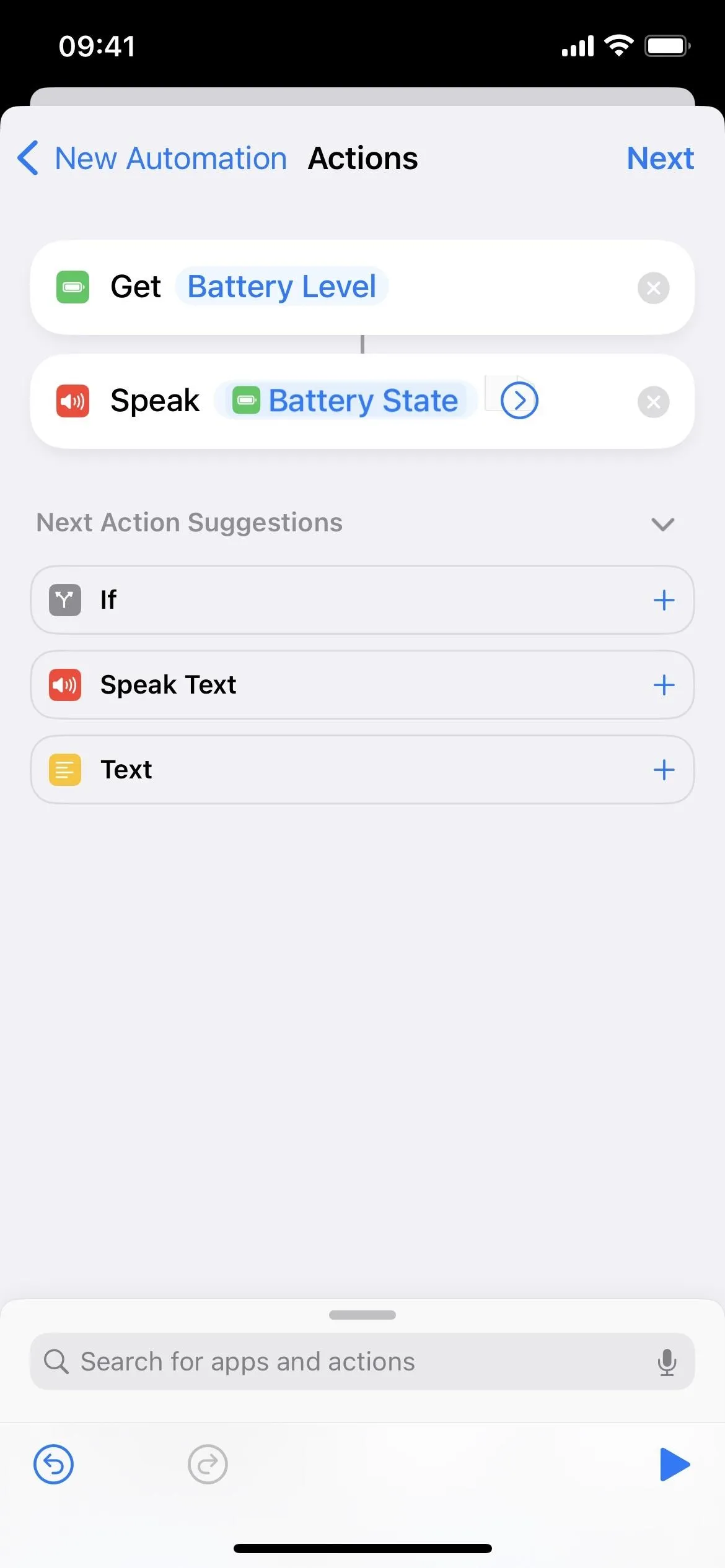



Customize What Siri Says (Optional)
You can add more to what Siri will say if you want. Coming back to the 46% example, I want my iPhone to say, "My current battery level is 46 percent."
To do that, tap in the field after "Speak" to place your cursor in front of "Battery State" or "Battery Level," then type what you want. For me, that's "My current battery level is." Then, move the cursor after "Battery State" or "Battery Level" and add the rest. For me, it's just "percent."
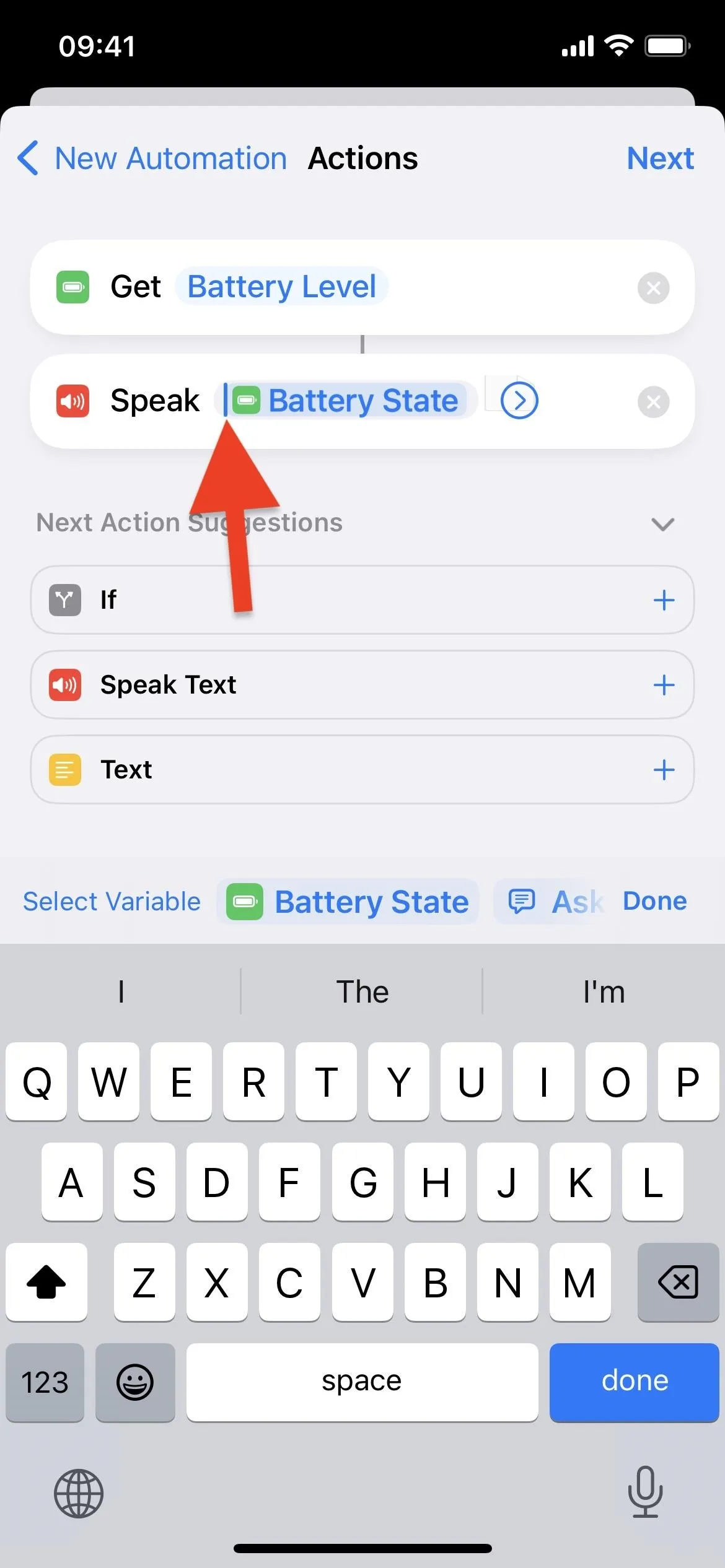
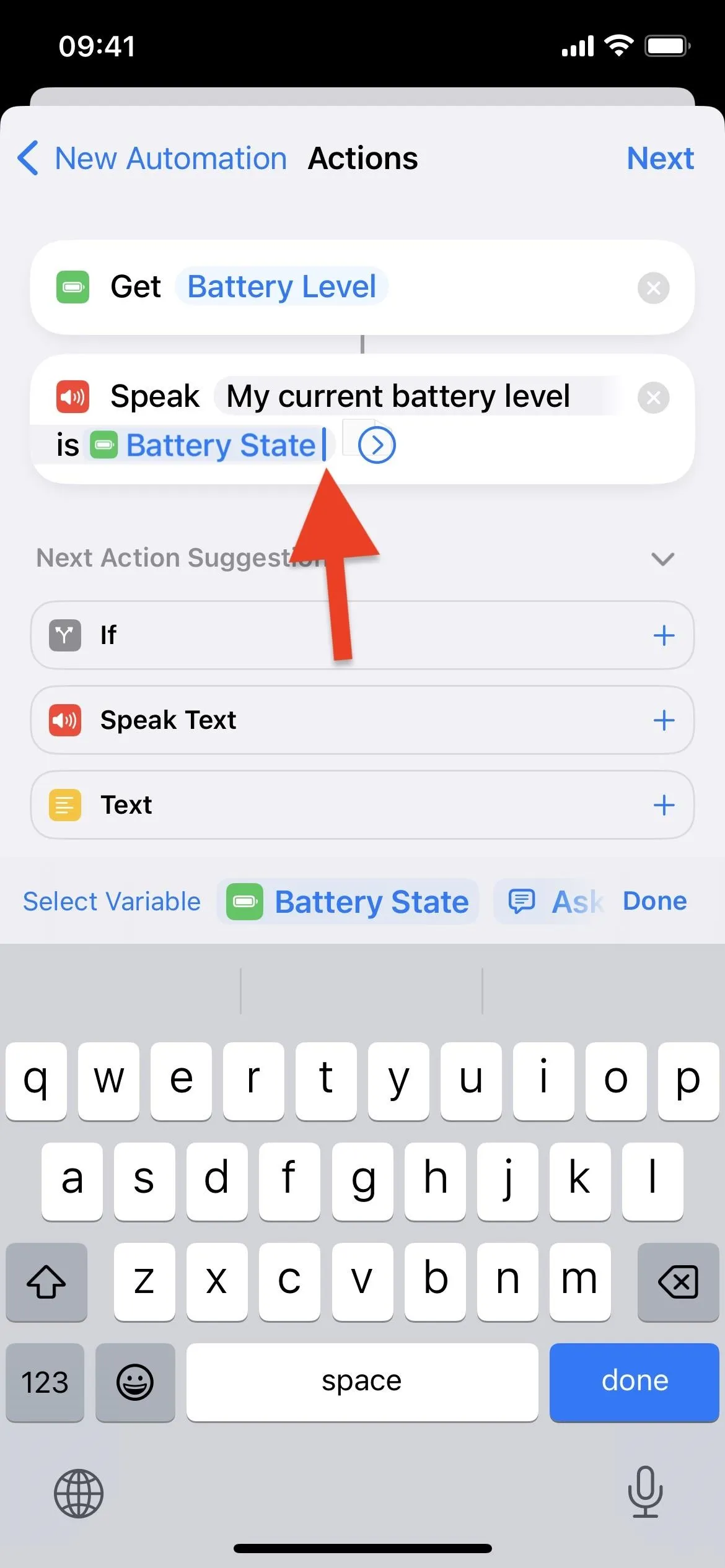
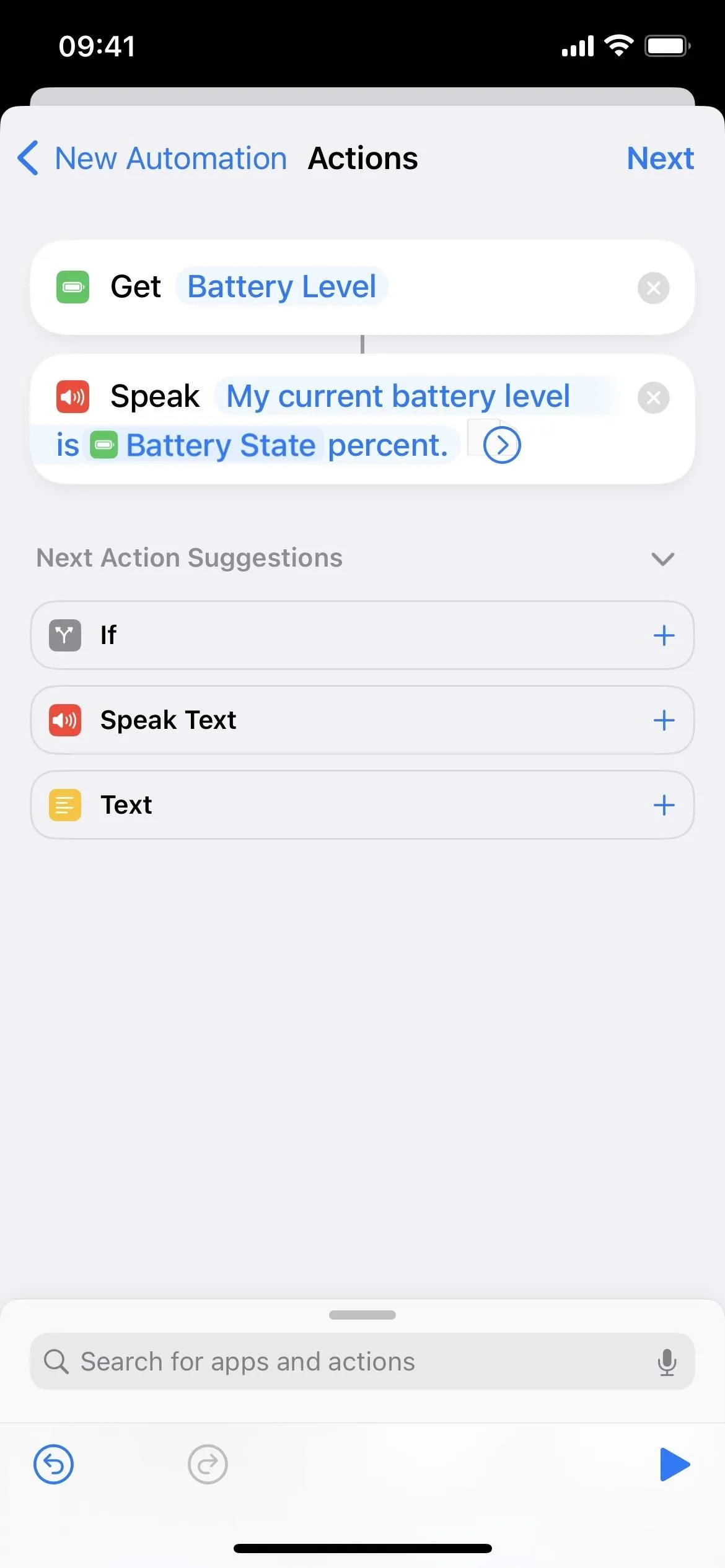



Customize How Siri Says It (Optional)
If you haven't already, tap the chevron in the Speak Text action box to show more options. You can toggle off "Wait Until Finished" in the expanded menu if you want. It doesn't matter if it's on or off for this automation because the result is the same. You can also customize the rate and pitch of Siri's voice, change the spoken language, and even pick a different voice.
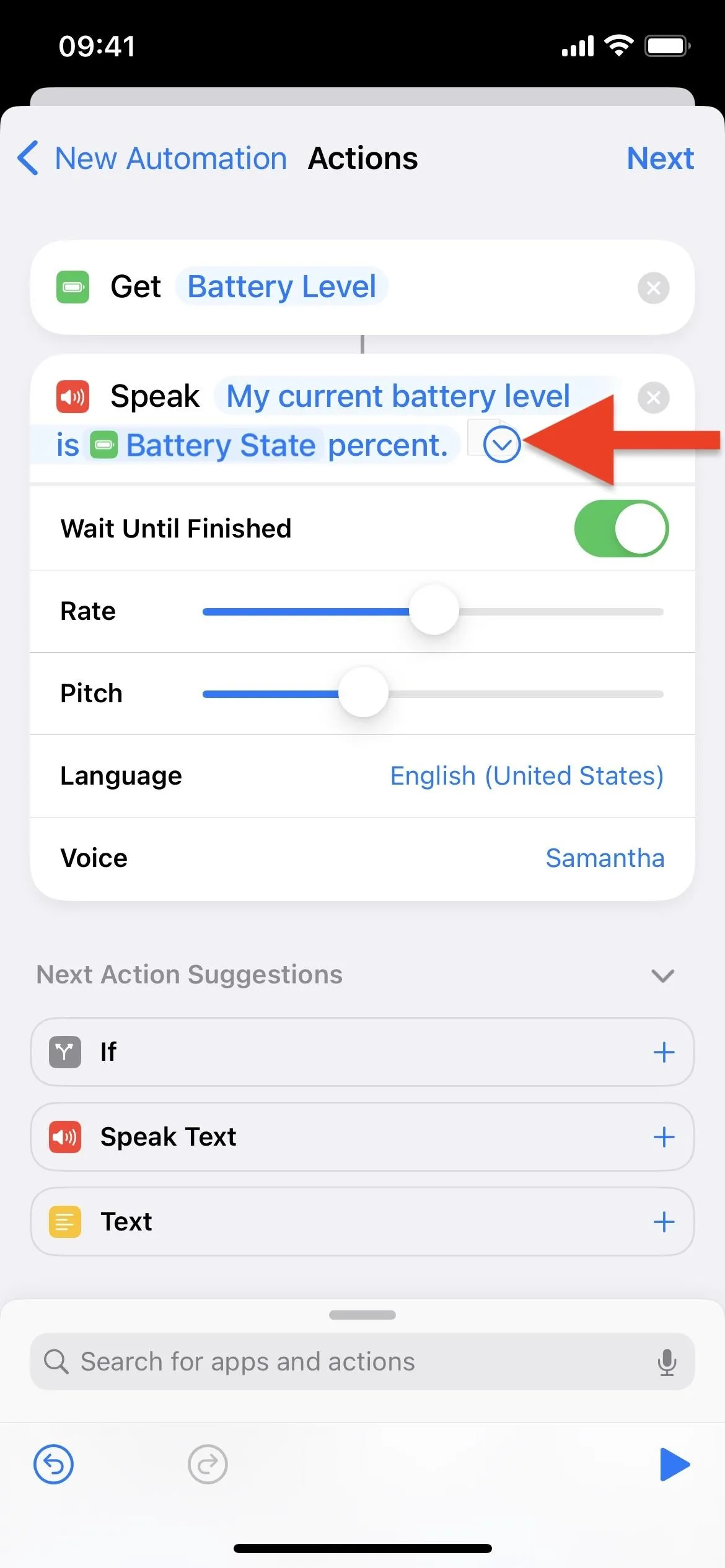
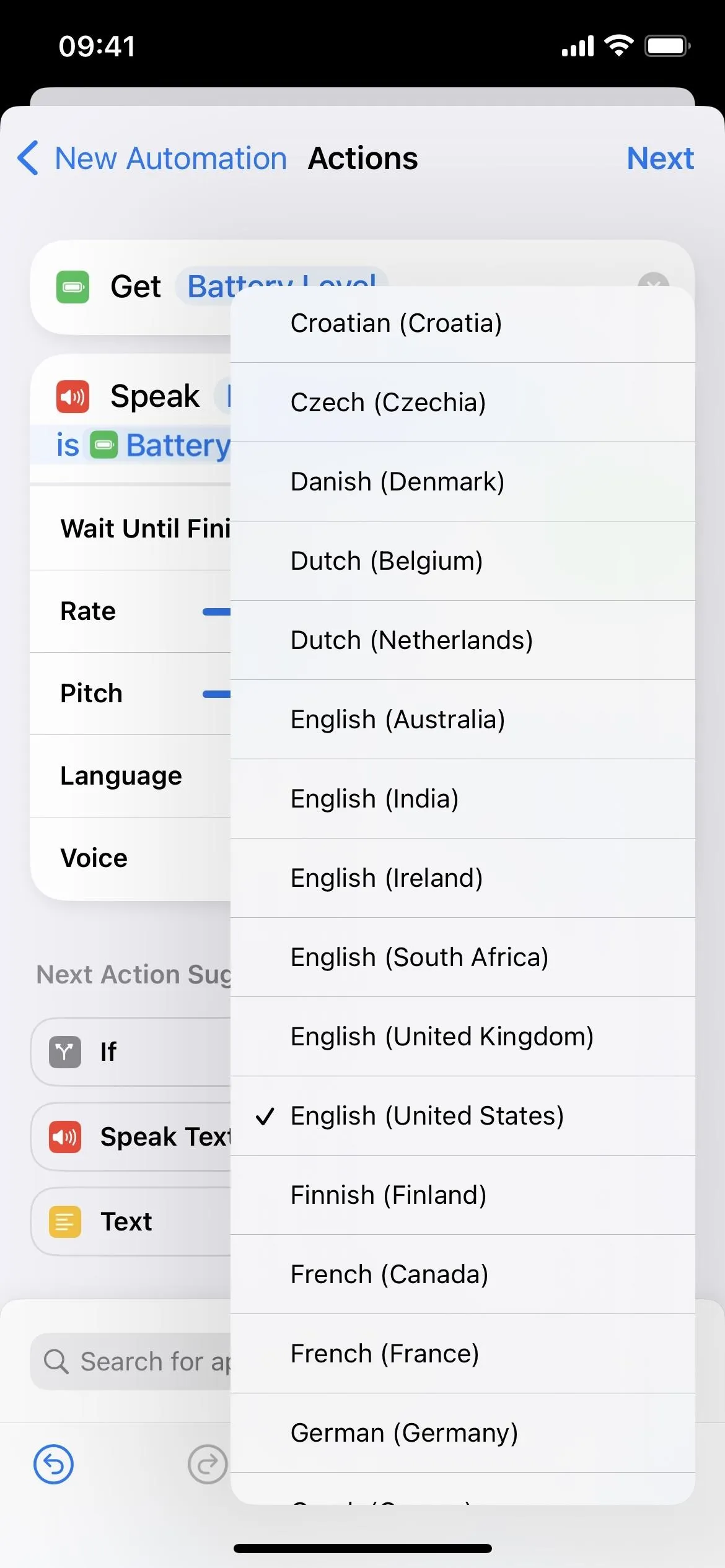
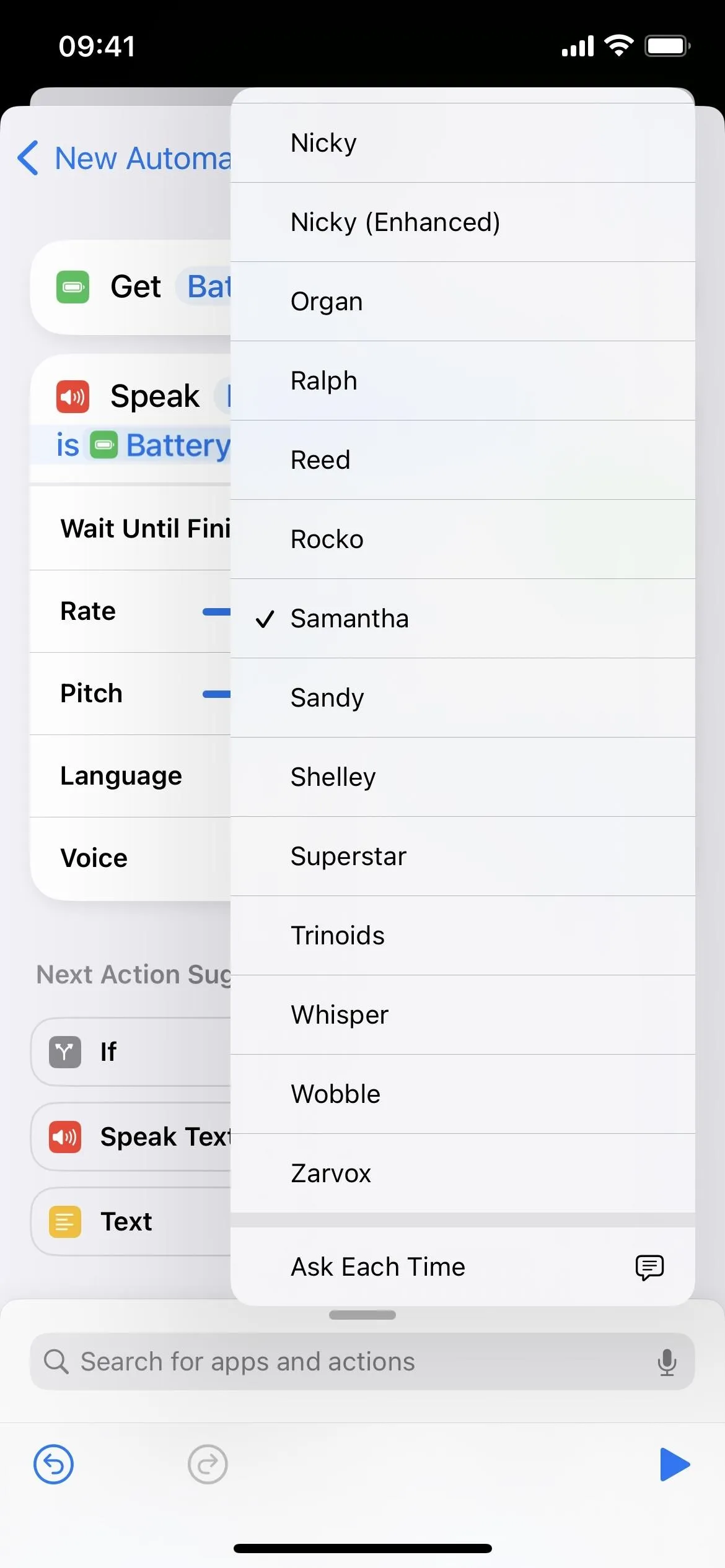



Disable 'Ask' and Save Your Automation
Tap "Next" after customizing how Siri will speak the text, then toggle off "Ask Before Running" on the next page. On the prompt, tap "Don't Ask" to make it a true automation instead of one that asks you if you want Siri to speak the battery level or not. Tap "Done," and you're ... done.
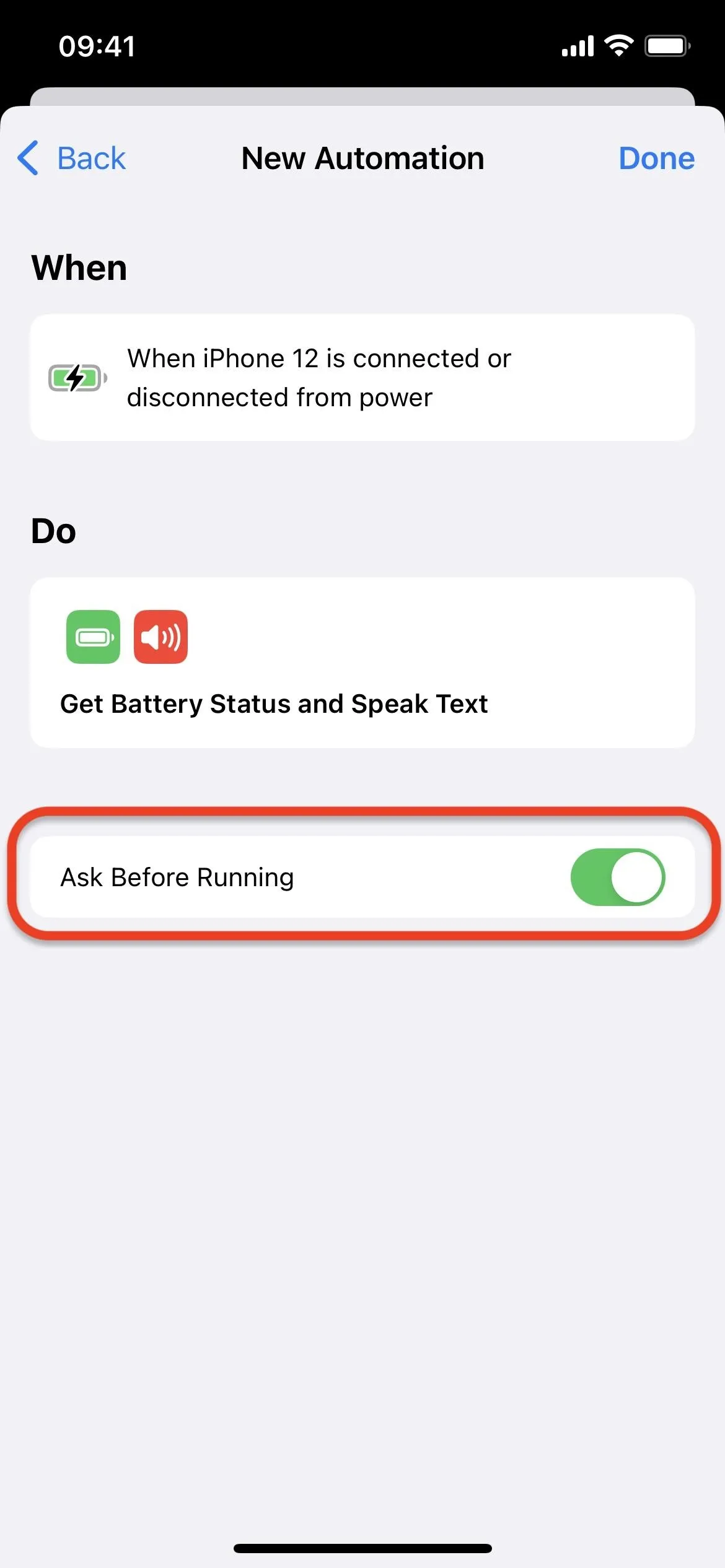
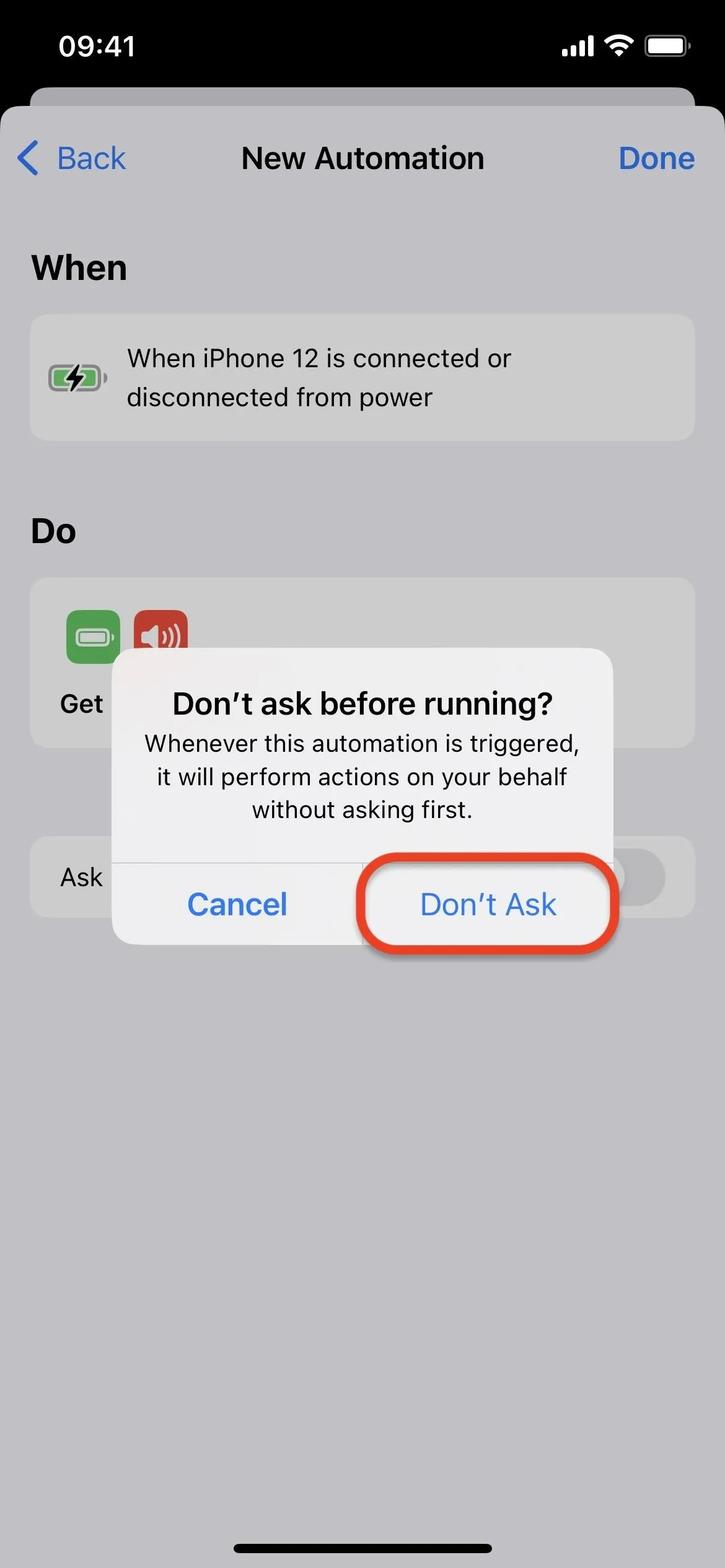
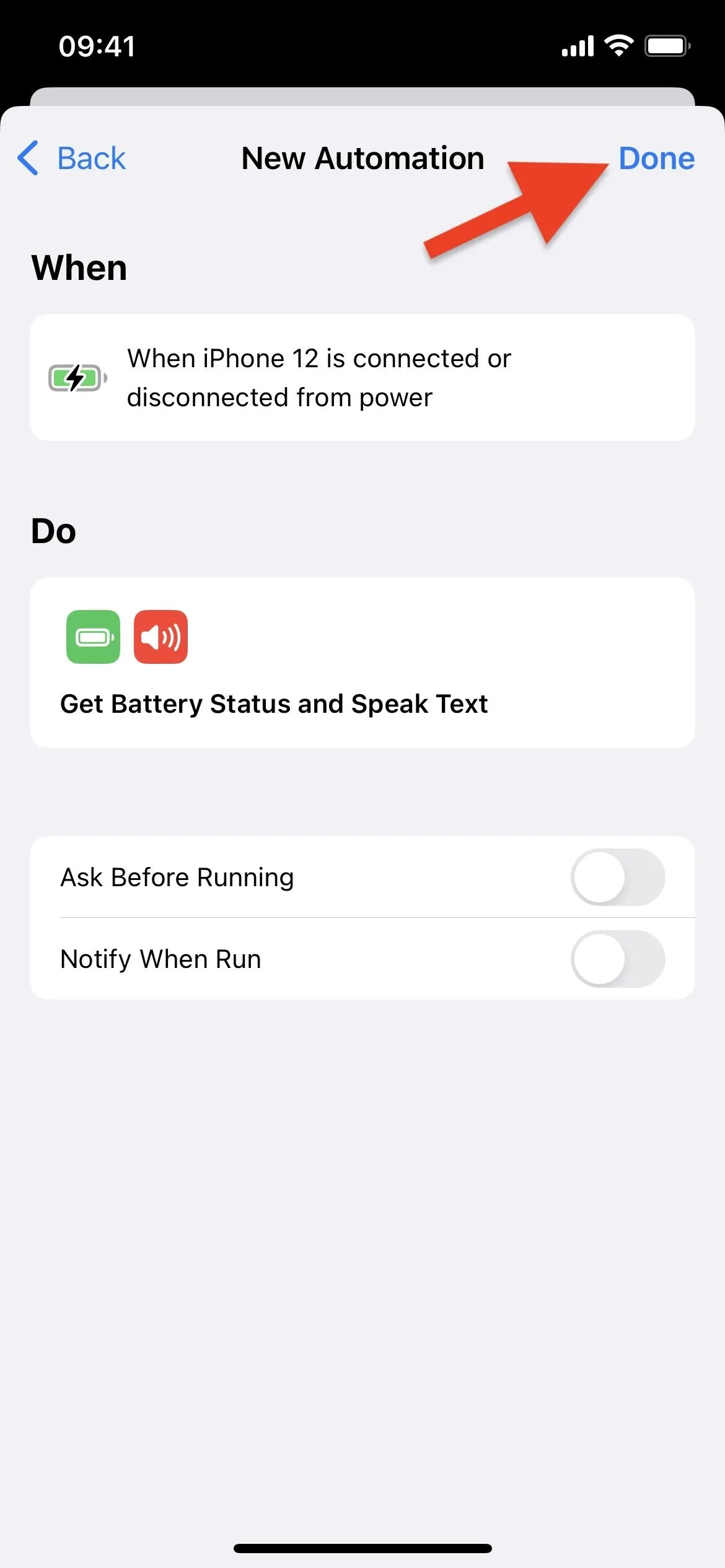



Test It Out and Troubleshoot
Now all that's left for you to do is test out your new automation. Plug your iPhone into a power source or place it on a wireless charger, and after about a second, Siri will speak whatever you programmed it to say. Unplug the iPhone or take it off the wireless charger, and Siri should tell you the new level. If it's not working correctly, here are a few common troubleshooting issues:
1. If You Can't Hear Siri
If you can't hear Siri speaking, you may have to increase Siri's volume on your device. You can do that in one of two ways. First, you can tell Siri to "speak up." Second, you can activate Siri how you usually would and then use the volume buttons on the side of your device while it's speaking to raise the levels. Siri should then remember your volume preferences for spoken interactions.
There is no action in Shortcuts to adjust Siri's volume, but maybe one day ... if we're lucky.
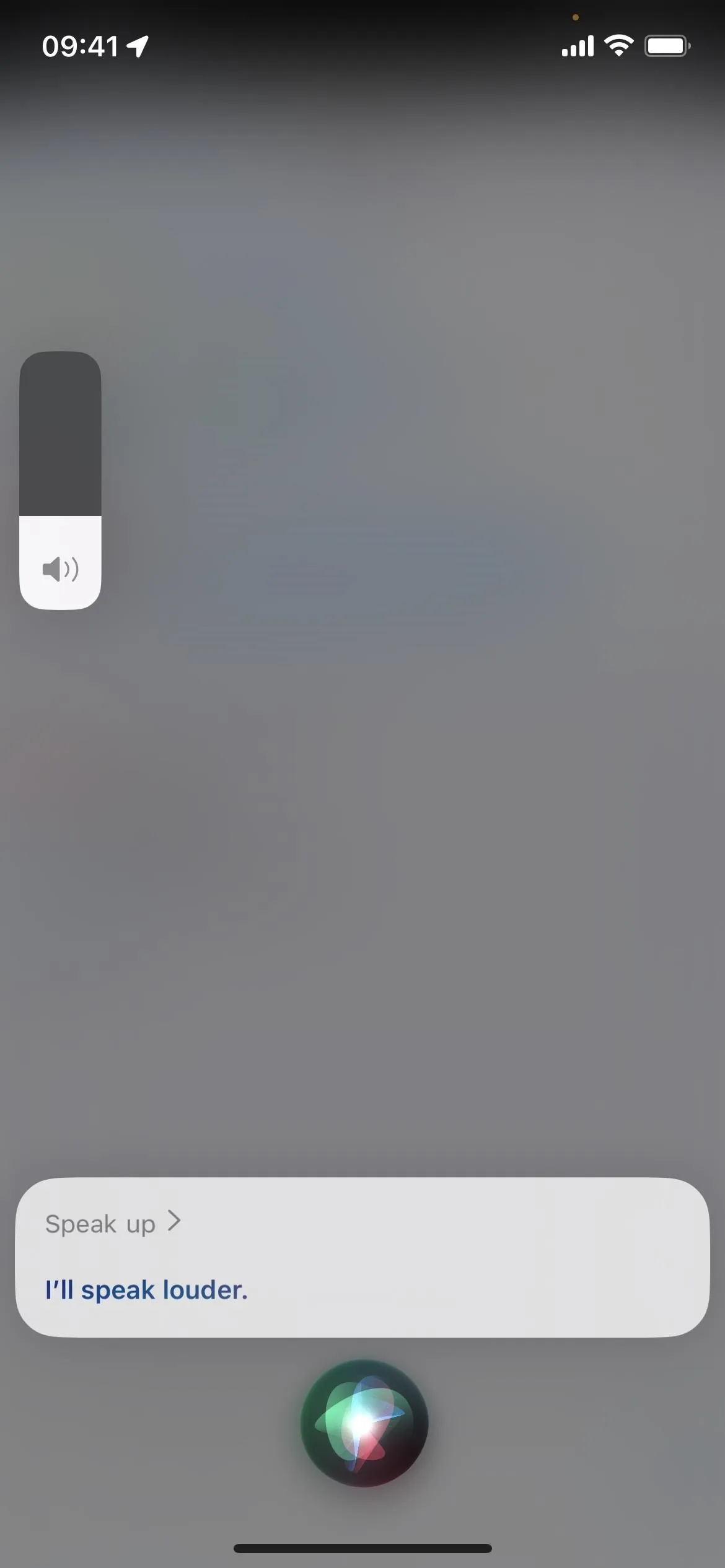
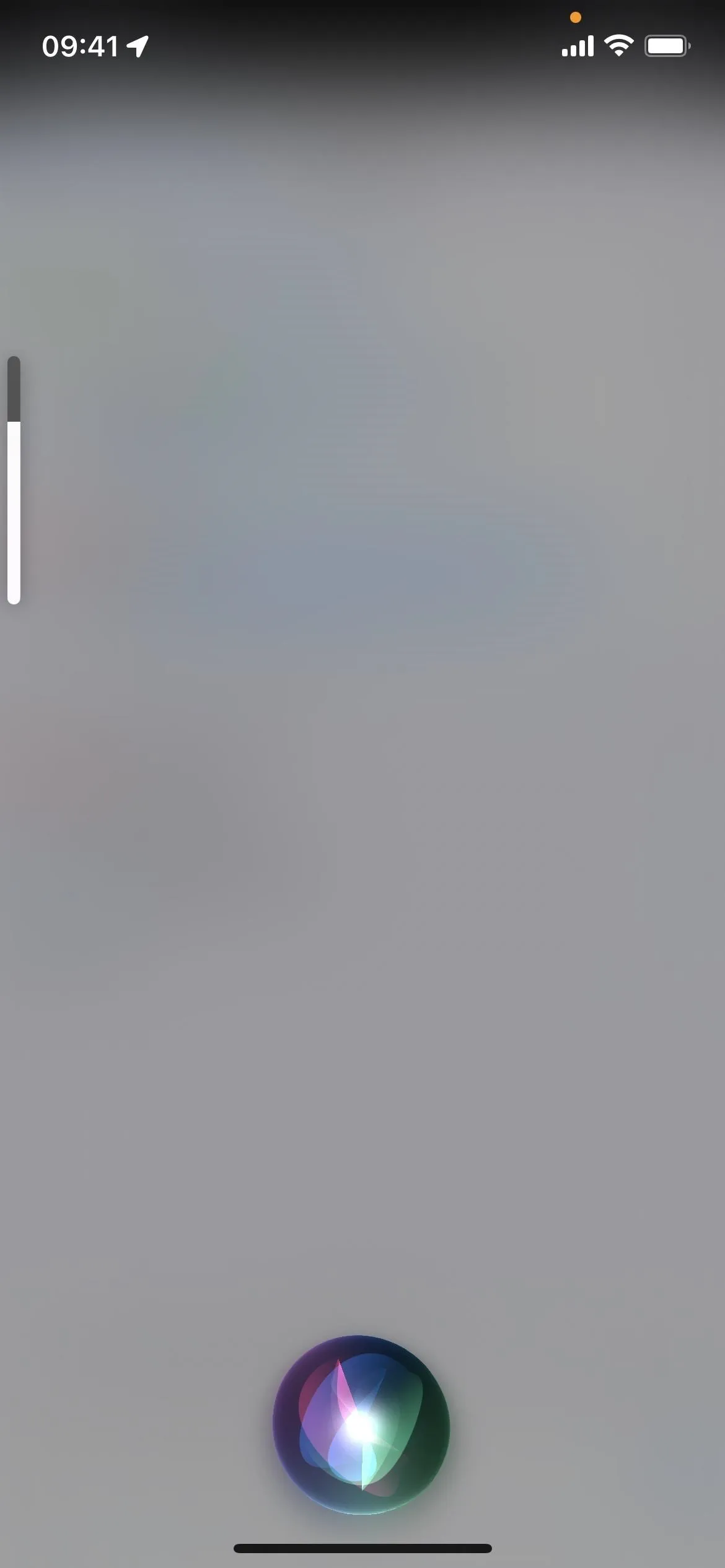


2. If It Speaks a Fractional Number
Occasionally, Siri may speak the volume level as a fractional number. For example, "41.38495873" instead of just "41." I've only encountered it a few times, but you can tweak the automation to make Siri only speak rounded numbers if it happens enough to be annoying.
To do that, place the "Round Number" action between the Get Battery Level and Speak Text actions. Then, tap "Battery State" or "Battery Level" in Speak Text's input field and hit "Clear Variable." After it disappears, place your cursor back where it was, and choose the "Rounded Number" suggestion above the keyboard. Save your changes, and it should stop spitting out fractional numbers.
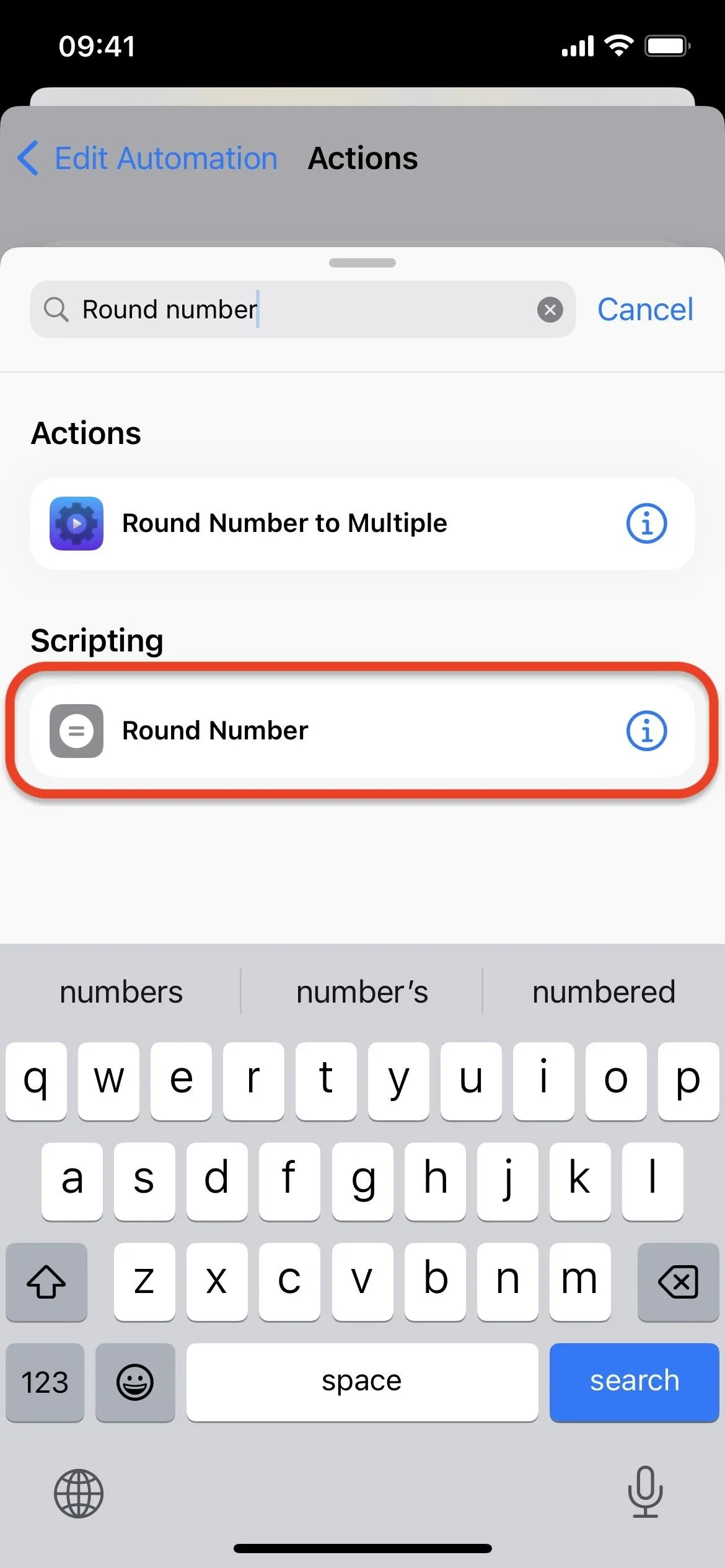
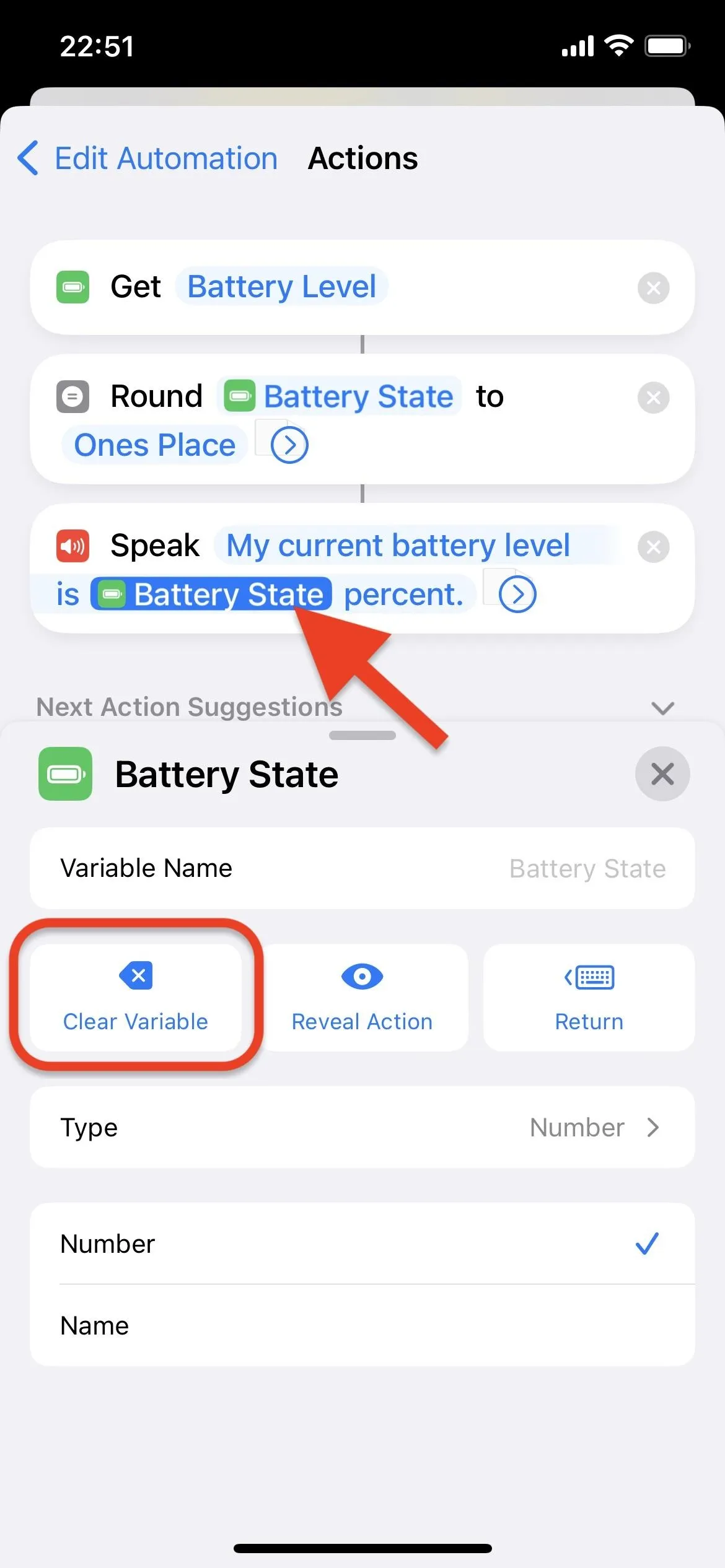
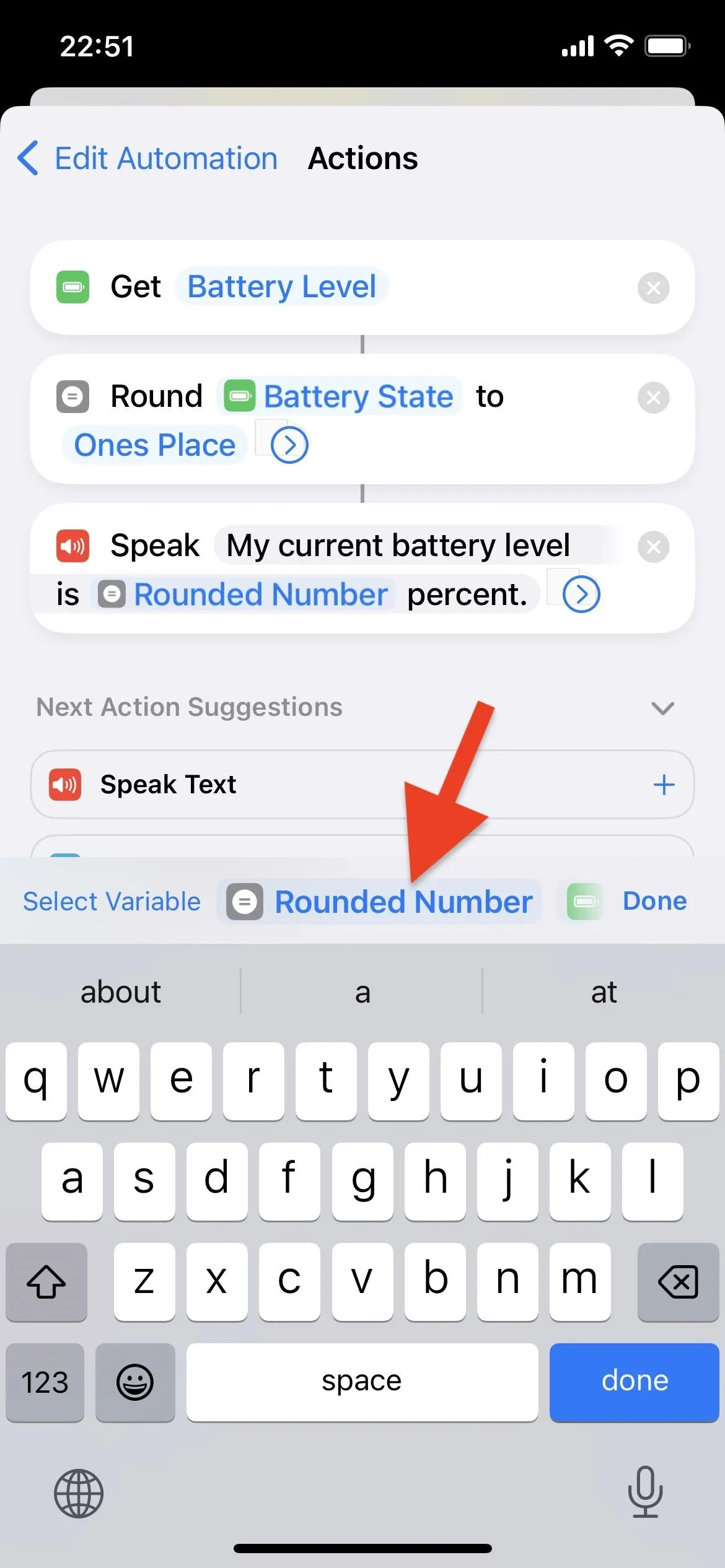



Cover photo and screenshots by Justin Meyers/Gadget Hacks




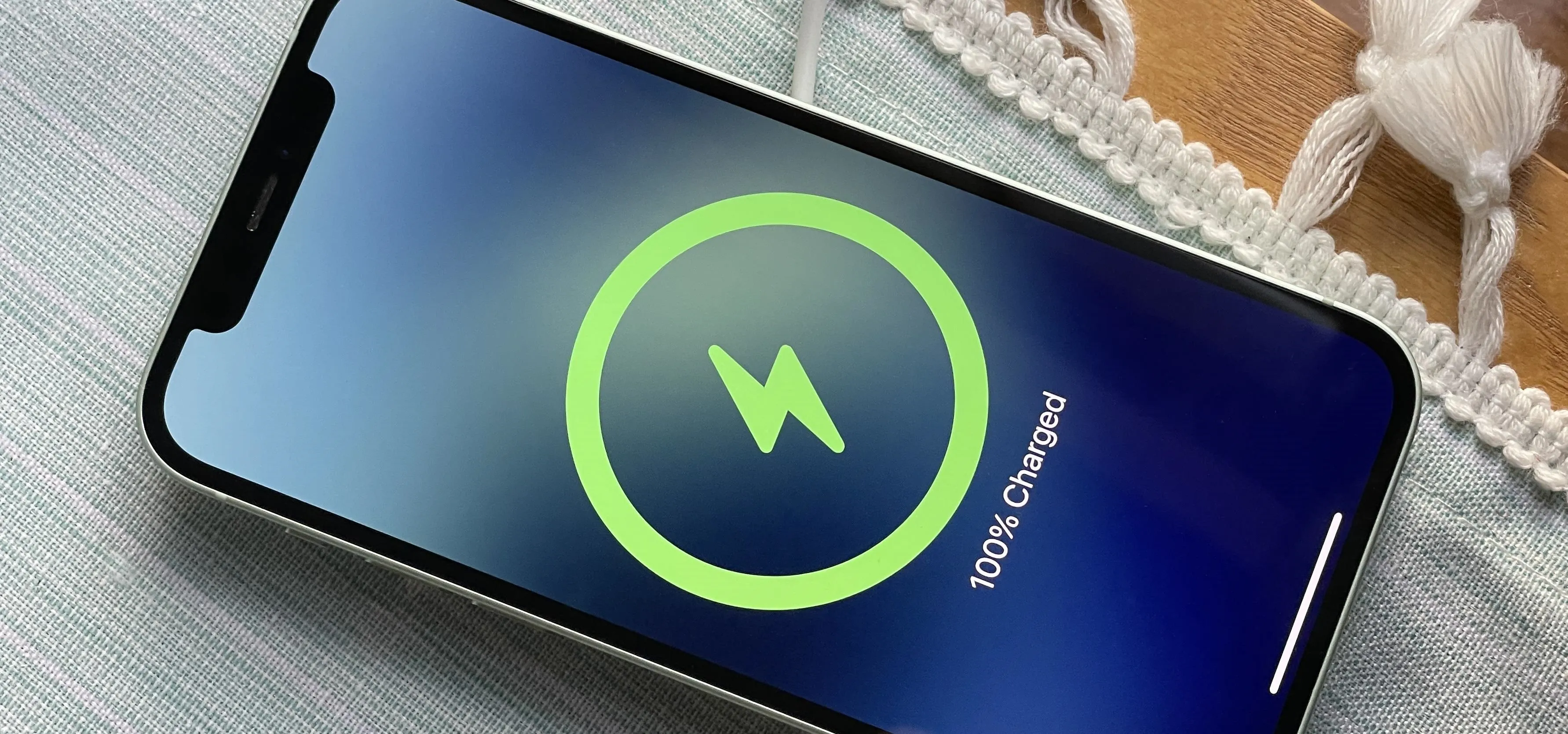




















Comments
Be the first, drop a comment!